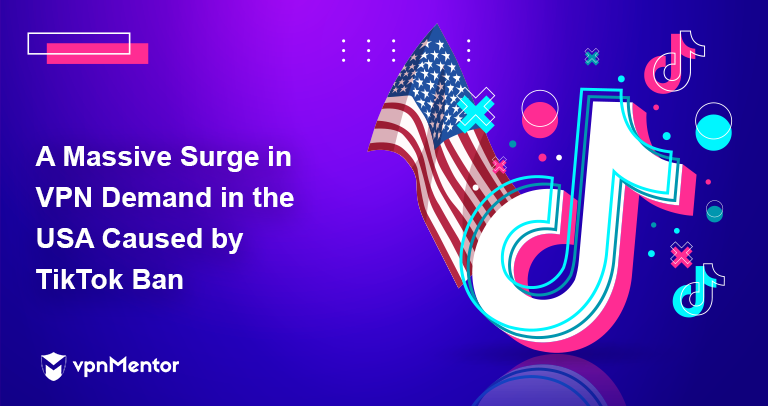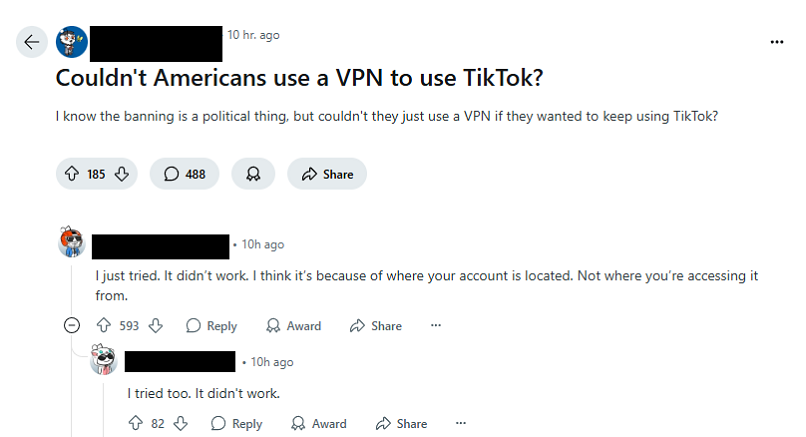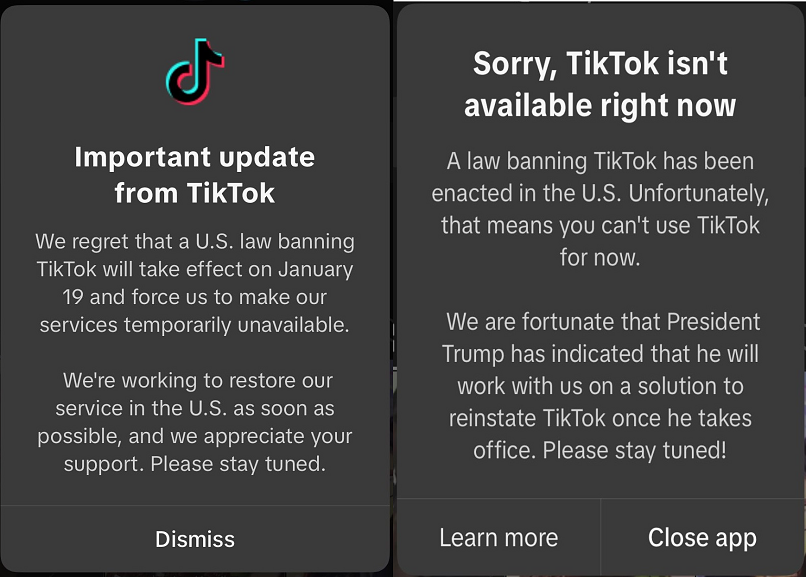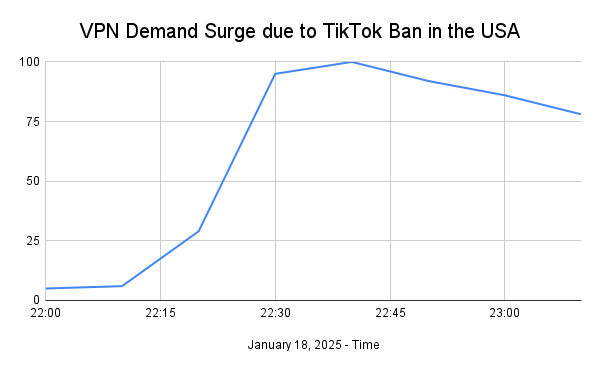A Massive Surge in VPN Demand in the USA Caused by TikTok Ban

vpnMentor’s Research Team has been following the looming TikTok ban in the United States, as the platform has sparked debates surrounding national security and data privacy concerns. The saga began with ByteDance, the China-based company behind TikTok, facing pressure to sell its U.S. operations or risk a nationwide ban by January 19, 2025. This move was fueled by fears that user data could be compromised due to potential ties with the Chinese government.
Key facts leading up to this pivotal moment:
- In 2020, during the 1st Trump administration, concerns about national security prompted initial discussions on banning TikTok.
- The “Protecting Americans from Foreign Adversary Controlled Applications” Act was passed in April 2024, requiring ByteDance to divest its U.S. operations by January 19, 2025. The act also requires internet hosting providers and app store companies, such as Apple and Google, to stop supporting TikTok.
- Public opinion on the ban has shifted over time, with varying views on data privacy and freedom of expression.
Legal challenges and government discussions have been ongoing to prevent the ban from taking effect. - President-elect Donald Trump sought a delay for the TikTok ban in late December 2024, intending to reach a political resolution during his administration and expressed on January 18th that he will most probably issue a 90 days delay for that.
- However, the U.S. Supreme Court decided to uphold their resolution, mandating ByteDance's divestment from TikTok.
ByteDance decided to suspend their operation in the USA about an hour and a half before the deadline. - Tiktok is removed from the Google Play Store and the Apple Store.
- ByteDance’s other apps like CapCut and Marvel Snap also shut down.
The aftermath of this decision saw a remarkable surge in demand for Virtual Private Network (VPN) services across the USA. Prior to TikTok's ban, Virtual Private Network (VPN) service usage had been steadily increasing in the United States, showing an overall surge of approximately 30% across the country compared to 2024. However, VPN demand experienced a vast uptick on January 18th, the day preceding TikTok's ban in which the app shut down their operation within the country.
The surge in demand hit its peak with a massive 1566% spike within minutes following the app's shutdown in the country. However, this rapid escalation swiftly subsided as certain users discovered that utilizing a VPN proved futile due to the restriction blocking not only IP addresses but apparently all accounts originating from the USA.
Despite that, our research team has been following this demand and can confirm that despite the trend's oscillations, our last update was up 1400%.
 This screenshot from Reddit shows users expressing that a VPN is not working for them.
This screenshot from Reddit shows users expressing that a VPN is not working for them.
 This collage contrasts login messages for TikTok users in the USA. Supposedly, the one on the leaf was the first to appear and then it changed to the one on the right.
This collage contrasts login messages for TikTok users in the USA. Supposedly, the one on the leaf was the first to appear and then it changed to the one on the right.
The intertwining narratives of TikTok's ban and the subsequent spike in VPN demand reflect a complex balance between national security imperatives, data privacy considerations, and individual rights. While some see this as a violation of their constitutional rights, others question the risks of sharing data with China.
The surge in VPN use raises some concerns, as VPNs offer privacy and a safer internet browsing experience, but choosing the wrong provider can lead to security issues as we’ve reported before on different occasions.
We recommend users to exercise caution when selecting a VPN provider and to prioritize security features so they can better safeguard their online privacy. To mitigate the risks associated with using VPNs, By prioritizing essential features, such as Strong encryption, No-logs policy, Kill switch feature and DNS leak protection users can enhance their online security and privacy when utilizing VPN services.
It is important to note that while VPNs can offer enhanced privacy and security benefits, they should not be used for illegal activities. vpnMentor neither encourages nor condones the misuse of VPNs for unlawful purposes. It is crucial for users to understand the legal implications of their online activities and to use VPN services responsibly.




Please, comment on how to improve this article. Your feedback matters!